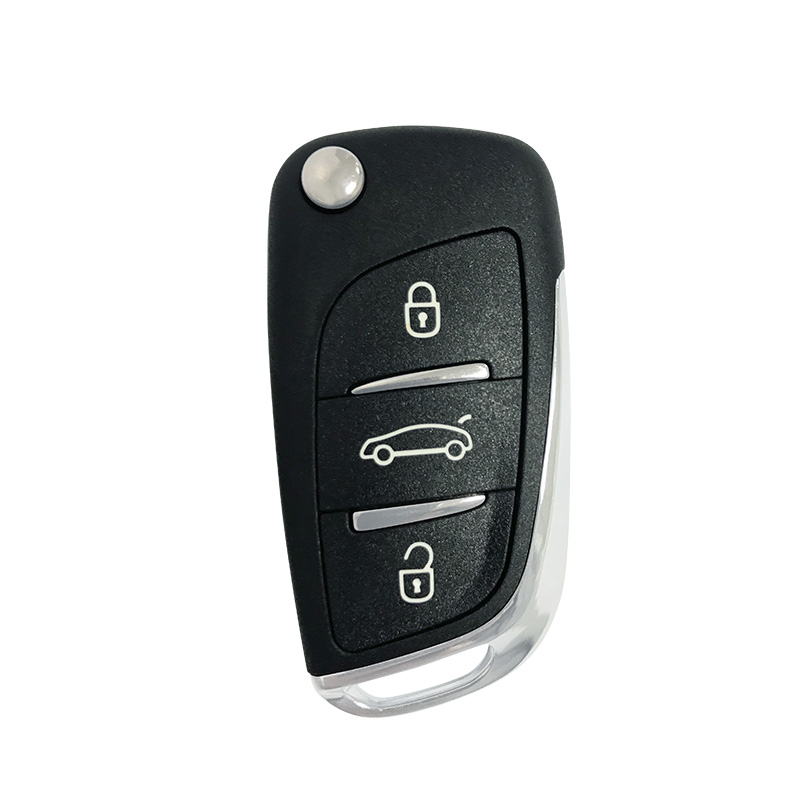Renault key fobs have transformed the way we access and interact with our vehicles, providing convenience and security. However, like many wireless technologies, these key fobs are not immune to potential security vulnerabilities. In this article, we will explore the known vulnerabilities and security risks associated with Renault key fobs and discuss measures to mitigate these risks, ensuring the safety of your vehicle.

Common Vulnerabilities of Renault Key Fobs
1. Relay Attacks: One of the most common vulnerabilities associated with key fobs is relay attacks. In this scenario, criminals use relay devices to intercept the wireless signal between the key fob and the vehicle. This allows them to unlock and start the vehicle without physical access to the key fob.
2. Code Cloning: Attackers may attempt to capture and clone the codes transmitted by the key fob. By replicating these codes, they can gain unauthorized access to the vehicle.
3. Replay Attacks: Replay attacks involve recording the signal sent from the key fob and replaying it at a later time to unlock the vehicle. This type of attack can compromise the security of the key fob system.
4. Brute Force Attacks: Older key fob systems may be susceptible to brute force attacks, where attackers systematically try numerous code combinations to gain access to the vehicle.
Mitigating Security Risks
To mitigate the security risks associated with Renault key fobs, consider the following measures:
1. Key Fob Signal Blocking: When not in use, store your key fob in a signal-blocking pouch, often referred to as a Faraday bag. These pouches prevent wireless signals from reaching the key fob, making it immune to relay attacks.
2. Enable Passive Entry/Start Only When Needed: Some Renault vehicles offer passive entry/start features, which allow the key fob to remain in your pocket or bag. If possible, disable this feature when not required to minimize the window of opportunity for attackers.
3. Upgrade to Advanced Key Fob Technology: Consider upgrading to key fob technology with improved security features, such as rolling codes or encrypted communication. These advanced systems generate unique codes with each use, making it extremely difficult for attackers to replicate signals.
4. Regularly Change Key Fob Batteries: Weak or depleted batteries can make key fobs more vulnerable to attacks. Replace the batteries at recommended intervals to ensure optimal signal strength.
5. Store Your Key Fob Securely: Avoid leaving your key fob in unattended or exposed areas, as it can be vulnerable to theft or unauthorized access. Keep it in a secure location when not in use.
6. Firmware and Software Updates: Ensure that your vehicle's key fob and associated software are kept up to date. Manufacturers often release updates to address vulnerabilities and enhance security.
7. Physical Security Measures: Consider implementing traditional security measures, such as steering wheel locks or car alarms, to deter theft and unauthorized access.
Conclusion
Renault key fobs offer convenience and security, but they are not without vulnerabilities. To protect your vehicle, it is essential to be aware of these risks and take proactive steps to mitigate them. By following the recommended precautions and staying informed about the latest security developments, you can enhance the security of your Renault and enjoy the benefits of keyless entry and ignition with confidence and peace of mind.

 Englishen
Englishen











 No.991 Xingxiu Road,Taiwanese Investment Zone, Quanzhou, Fujian Province,P.R.China
No.991 Xingxiu Road,Taiwanese Investment Zone, Quanzhou, Fujian Province,P.R.China +86 13960286508
+86 13960286508
 3D Reality Showroom
3D Reality Showroom
